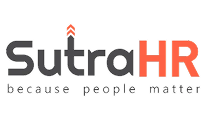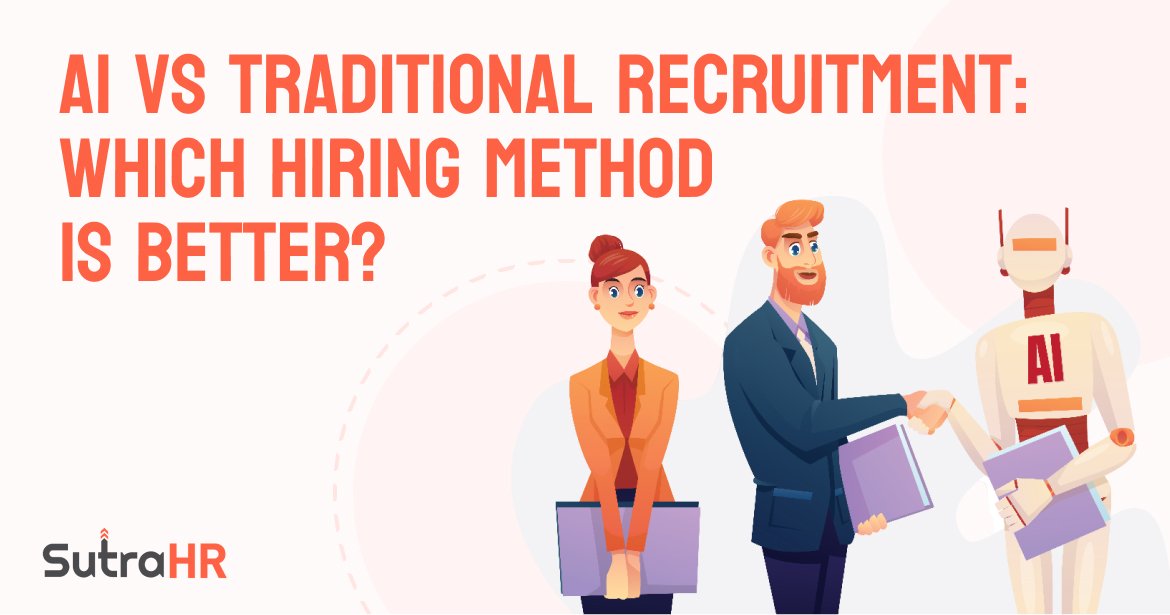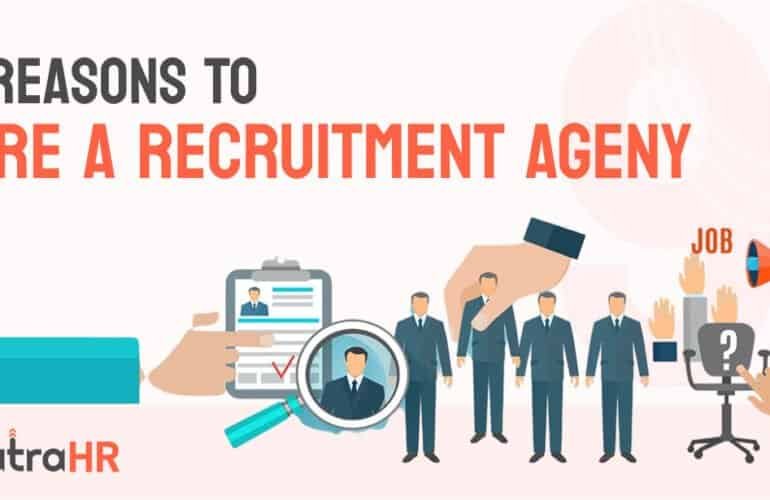AI vs Traditional Recruitment: Which Hiring Method is Better?
Recruitment has come a long way from piles of resumes and long interview days. Artificial intelligence (AI) is shaking up the hiring world, leaving many businesses wondering: Should we stick with traditional recruitment methods or embrace AI-powered hiring tools?
It’s not just about replacing humans with machines. It’s about improving the hiring process, saving time, and making better decisions without losing that all-important human touch.
In this blog, we break down AI vs Traditional Recruitment, explore their strengths and weaknesses, and help you decide what’s best for your business or hiring strategy.
What is Traditional Recruitment?
Traditional recruitment is the classic hiring approach most of us are familiar with. It relies heavily on manual processes and human judgment, and typically follows this structure:
- Posting Job Ads – On job portals, newspapers, and websites.
- Resume Screening – Recruiters go through resumes one by one.
- Interviews & Assessments – Phone screens, in-person interviews, tests.
- Background Checks & Offers – Final steps before sealing the deal.
Pros and Cons of Traditional Recruitment
| ✅ Pros of Traditional Recruitment | ❌ Cons of Traditional Recruitment |
|---|---|
| Personal Connection Face-to-face interviews help assess communication, attitude, and cultural fit. | Time-Intensive Screening and shortlisting manually takes days or even weeks. |
| Flexible Judgments Recruiters can pivot questions and assess soft skills on the spot. | Risk of Bias Unconscious human biases can influence decisions. |
| Trusted Approach It’s familiar to both employers and candidates. | Costly Process Job ads, recruiter fees, and drawn-out timelines increase expenses. |
How AI is Revolutionizing Recruitment
AI in recruitment means using advanced technologies like machine learning, chatbots, and predictive analytics to automate and optimize hiring. Here’s how it works:
- AI Sourcing Tools – Find candidates using platforms like LinkedIn Recruiter or HireEZ.
- Automated Resume Screening – AI filters applications based on skillsets and job criteria.
- AI-driven screening combined with automated testing
frameworks can further validate candidates’ technical or role-specific skills before interviews, making shortlisting even more accurate. - Smart Chatbots – Tools like Mya and XOR engage with candidates 24/7 and schedule interviews.
- Video Interview Analysis – Software like HireVue evaluates tone, body language, and content.
- Predictive Hiring – AI analyzes past hiring patterns to forecast future candidate success.
Pros and Cons of AI Recruitment
| ✅ Pros of AI Recruitment | ❌ Cons of AI Recruitment |
|---|---|
| Faster Hiring AI can screen thousands of resumes in minutes. | No Human Intuition AI can’t fully assess emotional intelligence or cultural alignment. |
| Reduced Bias (When Trained Right) AI focuses on skills, not demographics. | Bias in Algorithms If AI is trained on flawed data, it can reinforce existing biases. |
| Data-Driven Insights Identify top candidates and hiring trends with analytics. | Candidate Skepticism Some job seekers feel uneasy being evaluated by machines. |
| Cost-Effective Less manual effort means lower long-term recruitment costs. |
AI vs Traditional Recruitment: A Side-by-Side Comparison
| Factor | Traditional Recruitment | AI Recruitment |
|---|---|---|
| Speed | Slower (weeks/months) | Faster (days/weeks) |
| Bias | Higher (human bias) | Lower (if algorithms are clean) |
| Cost | Expensive (ads, fees) | More affordable (automation) |
| Candidate Experience | Personalized but slower | Efficient but may feel impersonal |
| Scalability | Limited by team capacity | Easily scalable |
| Quality of Hire | Depends on recruiter expertise | Data-backed, consistent |
Why a Hybrid Approach is the Smartest Choice
Rather than going all-in on one method, many companies are finding success by blending both:
- Let AI handle the grunt work – resume screening, scheduling, and initial outreach.
- Let humans do what they do best – personal interviews, assessing cultural fit, and final decisions.
- AI can also be used after hiring to predict employee performance or reduce attrition.
This hybrid recruitment strategy ensures you’re getting the efficiency of AI without losing the human judgment that makes great hires.
What’s The Future of Recruitment?
We’re not headed toward a recruiter-less future. Instead, we’re entering an era where AI enhances human capabilities, not replaces them. A LinkedIn report found that 67% of recruiters say AI helps save time, and 43% believe it improves candidate matching. But with power comes responsibility. As AI gets smarter, companies must:
- Audit AI systems to prevent bias.
- Be transparent with candidates about AI use.
- Ensure human oversight at critical decision points.
The EU AI Act and similar policies are beginning to shape ethical AI use in recruitment globally.
Key Takeaways
🔹 AI makes hiring faster and smarter, but it can’t replace human judgment.
🔹 Traditional recruitment offers emotional insight but is slower and costlier.
🔹 A hybrid approach offers the best of both: automation + human touch.
🔹 Ethical use of AI is essential for fairness, trust, and compliance.
Frequently Asked Questions about AI vs Traditional Recruitment
1. Is AI better than traditional recruitment?
Not always. AI is faster and more scalable, but traditional methods offer personal evaluation, especially for soft skills.
2. Can AI remove hiring bias?
AI can help reduce bias if trained on unbiased data. Regular audits and diverse datasets are a must.
3. Is AI hiring more expensive?
AI tools may have higher upfront costs but offer long-term savings by speeding up hiring and reducing manual labor.
4. Do candidates prefer AI or human recruiters?
Many appreciate AI’s efficiency and 24/7 responses, but still value human interaction during interviews.
5. Will AI replace human recruiters?
No. Experts predict up to 80% automation for admin tasks, but humans will remain essential for final hiring decisions.




